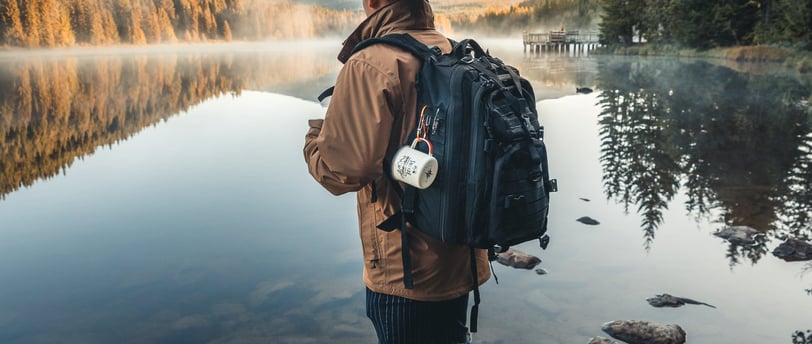Cooking in the Wild
Easy and Lightweight Foods for Backpackers
WILD EDIBLESWILDERNESSFOOD
By: Stephanie
12/20/20232 min read


Introduction
When embarking on a backpacking adventure, having a personal-sized backpacker's mess kit can be a game-changer. Not only does it allow you to cook your own meals, but it also opens up a world of culinary possibilities even in the wild. In this article, we will explore a variety of lightweight foods that can be easily prepared and cooked in a backpacker's mess kit, while also delving into the realm of foraging for wild edibles and alternative cooking methods.
Lightweight Foods for Backpackers
When selecting foods to pack for your backpacking trip, it's crucial to prioritize lightweight options that won't weigh you down. Here are some ideas for easily transportable foods:
Dried fruits and nuts: These nutrient-dense snacks are lightweight, provide essential energy, and don't require refrigeration.
Dehydrated meals: There are numerous dehydrated meal options available in stores, ranging from pasta dishes to curries, which only require adding boiling water.
Peanut butter: A versatile and protein-packed spread that can be enjoyed on its own or paired with crackers, tortillas, or bread.
Instant oatmeal: A quick and filling breakfast option that can be easily prepared by adding hot water.
Tuna or salmon pouches: These individual-sized pouches offer a convenient source of protein and can be enjoyed on their own or mixed with other ingredients.
Wild Edibles for a Simple Hot Meal
Foraging for wild edibles adds an exciting dimension to your backpacking experience. Here are a few wild plants that can be foraged and made into a simple hot meal using your mess kit:
Dandelion greens: These common weeds can be sautéed with olive oil, garlic, and salt to create a nutritious side dish.
Nettle: With careful handling to avoid stinging, nettle leaves can be boiled and used as a flavorful addition to soups or stews.
Wild berries: Depending on the season and location, wild berries such as blueberries or blackberries can be enjoyed as a snack or added to oatmeal.
Wild mushrooms: If you have proper knowledge and identification skills, foraging for edible mushrooms can provide a flavorful addition to your meals. Be sure of identification.
Alternate Cooking Methods in the Wilderness
While a backpacker's mess kit typically includes a compact stove, it's always good to have alternative cooking methods up your sleeve. Here are a few options:
Campfire cooking: If campfires are allowed in your camping area, cooking over an open flame can add a rustic charm to your meals. Just make sure to follow fire safety guidelines.
Solar cooking: Utilizing the power of the sun, solar cookers can be a sustainable way to prepare meals. They work best on sunny days and are ideal for slow-cooking dishes.
Alcohol stoves: Lightweight and easy to make, alcohol stoves can be fueled by denatured alcohol or high-proof spirits, providing a reliable cooking option on the trail.
Alternate Cooking Fuels
When it comes to cooking fuels, it's important to consider their portability and availability. Here are a few alternate cooking fuels that are easily transported or scavenged:
Isobutane/propane canisters: These small, lightweight canisters are a popular choice for backpackers due to their convenience and efficiency.
Wood: If campfires are permitted, scavenging for fallen branches or using small twigs can provide a sustainable and readily available cooking fuel.
Alcohol: As mentioned earlier, denatured alcohol or high-proof spirits can be used as fuel for alcohol stoves.
Conclusion
With the right selection of lightweight foods, some knowledge of wild edibles, and alternative cooking methods and fuels, your backpacker's mess kit can transform into a culinary hub in the wilderness. Experiment with different recipes and techniques, and enjoy the satisfaction of preparing a delicious meal under the open sky. Happy backpacking!